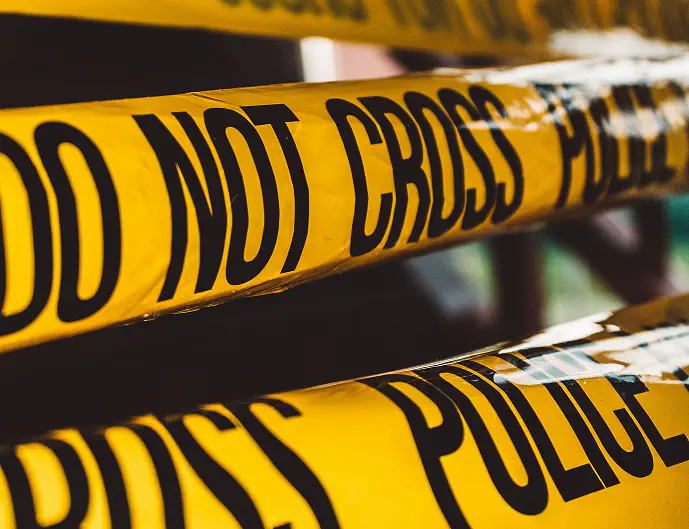The CSI effect
On the perception of forensic science.
 Photo by David von Diemar on Unsplash
Photo by David von Diemar on UnsplashAccording to Wikipedia, the CSI effect is “any of several ways in which the exaggerated portrayal of forensic science on crime television shows […] influences public perception”. The influence of TV shows on the perception of forensic voice comparison is obviously much older than CSI: Crime Scene Investigation…
Last year one of my students wrote a Master’s thesis on the representation of voice forensics in British and American films and TV series. From the excerpts she picked, it is clear that two common misconceptions have been repeatedly conveyed in TV series:
the illusion that people can recognize voices and match two samples of the same voice with perfect accuracy;
the scientific-looking fake visual representation with two overlaid waveforms and the optional flashing MATCH sign. A prototype of the genre is the following excerpt from The Prisoner:
Such fallacies have permeated our daily lives to the extent that people (including jurors in court) are often very surprised when you tell them that scientific evidence supporting these two aspects is much weaker than they think.
Other common misconceptions include, e.g. the ridiculously small amount of time needed for forensic scientists in TV series to perform their analyses: in CSI s06e12: “If you got a couple of minutes, I need a voice comparison”. And also, in CSI, it seems that any scientist is an expert in dozens of different disciplines while, from what I’ve seen here in France, scientists are highly specialized.
The French scientific community has always been extremely cautious about forensic voice analysis: they issued a statement in the 1990s that, given the lack of strong scientific evidence, no speech scientist should perform such analyses. The position was maintained throughout the 2000s. My original plan for a PhD was precisely in this field… But in the early 2000s I was told that even if I was lucky enough to find someone to supervise my work, I would be blacklisted for the rest of my career.
The situation was all the more frustrating at that time as speech scientists and phoneticians outside of France were carrying out research in forensic voice comparison. Fortunately, things started to change in the early 2010s; and although I can’t say my contribution to this change has been instrumental, I nevertheless always did my best to keep this aspect on the agenda. And our efforts paid off in 2017 with the beginning of the VoxCrim project.
Back to the CSI effect: in addition to folk theories on forensic science, there are at least two additional things that the popularity of the CSI franchise have impacted.
I’ve just read Roger Daltrey’s (the singer of the rock band the Who) autobiography and he doesn’t mention this, and I wouldn’t want to suggest that the Who would have been less iconic had their music not been used as the theme songs for the series, but it probably had a sizeable impact on younger generations.
This type of TV procedural show contributed to making forensic science look cool: I have just had a meeting with my colleagues from the VoxCrim project at the Service Central de la Police Technique et Scientifique (near Lyon). There was a training exercise going on: dummies on the ground, trainees with their protective suits, and of course, the typical yellow barricade tape… I asked my colleague if I could have a piece of barricade tape to take home with me; and before I had time to feel sorry about my stupid request, my colleague said: “of course you can; you wouldn’t believe the number of people who ask for a piece of tape.”